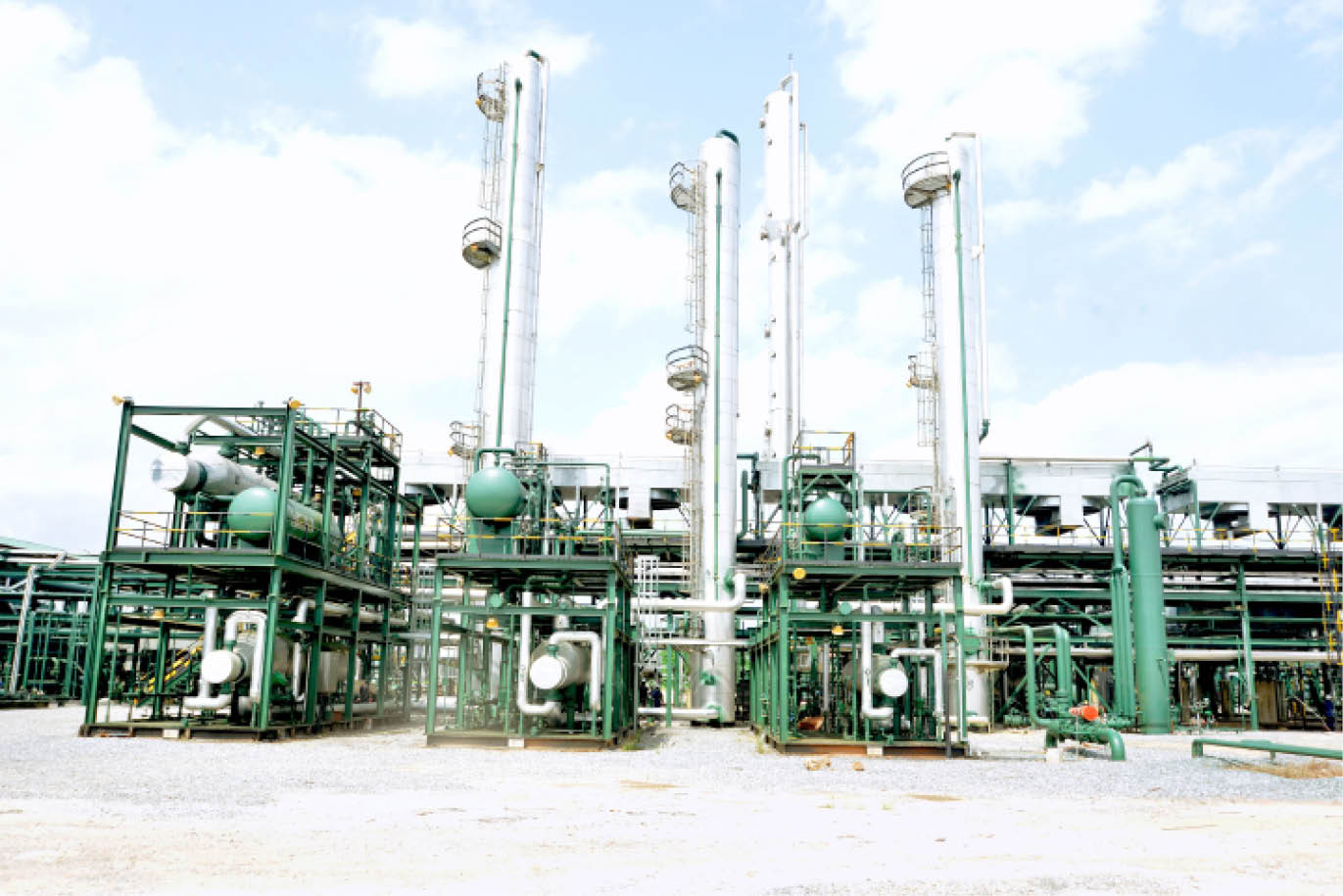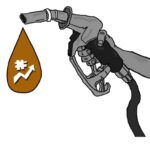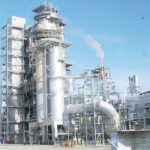After two decades in the National Assembly, the Petroleum Industry Bill (PIB) was finally passed on July 1, 2021, amidst controversy, Daily Trust on Sunday writes.
Some Nigerians are still kicking against some sections of the Petroleum Industry Bill as passed by the National Assembly.
- APPLY: Federal Roads Safety Corps recruitment 2021
- Abba Kyari: Why I attended Obi Cubana’s mum burial
For instance, the creation of two different regulators for the industry, namely, the Nigeria Midstream and Downstream Petroleum Regulation Authority and the Nigeria Upstream Regulatory Commission is seen as counterproductive.
The upstream sector is to be overseen by the Nigerian Upstream Regulatory Commission while the midstream and downstream sectors would be under the oversight of the Nigerian Midstream and Downstream Petroleum Regulatory Authority.
But according to a petroleum industry analyst, Sadiq Alabi, this will breed confusion and cause regulatory disunity, as well as waste the country’s scarce resources.
He said the downstream, midstream and upstream sectors were part and parcel of one industry. He added that many players in the industry operated in more than one sector; hence having them constantly liaising with two different regulators is unnecessary.
It is believed that the bill, if signed into law, would be the solution to the myriad of problems facing the petroleum industry in the country.
The bill also gives the minister of petroleum the power of a general oversight over the petroleum industry, even as the two agencies are required to report to him.
Specifically, the minister is empowered to formulate, monitor and administer federal government’s policy over the petroleum industry.
However, there are important deviations from the general powers of the minister as hitherto granted under the previous regime. For example, the minister’s former unfettered, sole discretion and power to grant or revoke oil licences have been curtailed. But he will continue to exercise a significant influence in the industry.
Also worthy of note is the 1 per cent levy to be imposed on the wholesale prices of petroleum products in Nigeria. The intention of the PIB is to move away from regulated prices to those determined by market forces. However, a multiplicity of levies and charges may act to distort that reality.
Another salient point is the commercialisation of the Nigerian National Petroleum Commission (NNPC) as the Nigerian National Petroleum Company Limited (NNPC Ltd).
Section 53 directs that the minister would, within six months of the commencement of the PIB, incorporate the NNPC Ltd in the Corporate Affairs Commission (CAC).
The shares are to be held by the Ministry of Finance, incorporated on behalf of the federal government.
The bill provides that the ministers of petroleum and finance are to determine which assets, interests and liabilities of the current statutory the NNPC are to be transferred to the NNPC Ltd. Assets, interests and liabilities not transferred to the NNPC Ltd would continue to be held by NNPC until they are extinguished or transferred to the government, upon which it would cease to exist.
Section 58 indicates that the Board of the NNPC Ltd is to be constituted in accordance with the provisions of the Companies and Allied Matters Act (CAMA) and the company’s articles of association.
Buhari’s assent will end subsidy – Sylva
The Minister of State for Petroleum Resources, Chief Timipre Sylva, said President Muhammadu Buhari’s assent to the PIB would automatically end fuel subsidy as market forces would determine the prices of fuel and allied products.
Speaking on subsidy payment, the minister said the federal government would have removed subsidy long ago if not for opposition.
He also said Nigeria would make a lot of revenue from crude oil, which, according to him, would not go away soon.
He said oil would continue to be needed to power global economic growth to eradicate poverty, which is still prevalent worldwide.
He added that the stabilising role of the Organisation of Petroleum Exporting Countries (OPEC) in oil market for the benefit of all stakeholders would continue to be required in the years ahead.
He said, “Nigeria as a key player in the industry will continue to lend full support to the efforts of the organisation to balance the oil market for the benefit of all. Nigeria’s membership of the OPEC is very important as it helps in strengthening shared values and protecting the group interest in the light of the above narratives.
Experts speak
But an expert in the industry, Jerry Lazarus, said the passed PIB may spell doom.
“I have some concerns about certain provisions of the bill as it affects the downstream. While the bill removed price control on petroleum products in section 205, Senate’s version has a clause that constrains market competition by restricting importation of products to only players with local refining capacity. This clearly counters the provision of 205(1).
‘’I think the provisions would create a duopoly in a deregulated price environment, thereby destroying the Nigerian downstream industry as we know it today. It limits the importation of all petroleum products, including fuel, diesel, aviation fuel, lubricants, base oil (products which are already deregulated), to only players with local refining capacity.
“In the near term, only the NNPC and Dangote will have domestic refining capacity for fuel, for instance, so they will be the only importers. This takes the industry back, so it could not have been the intention of the bill.
“Moving from a state-owned monopoly in a price-regulated market to a duopoly in a deregulated one is taking the industry backward and exposing Nigerians to exploitation and further hardship. This, in my humble view, is not reformatory,” Lazarus said.
He said that rather than seek to protect refiners, consumers should be protected by liberalising and expanding supply sources, adding that it is the only way prices would be “market determined” and consumers pay fair value for the products they buy.
According to him, the viability of local refining is not determined or enhanced by locking out competition; it is rather achieved by price deregulation, which has been done in section 205.
He further said, “This clause gives statutory unfair advantage to private players rather than through market competition. Indeed, the law and the authorities have an obligation to protect the market (other players, including Nigerian entrepreneurs) and the consumers rather than encourage monopoly/duopoly by locking out competition.
“This clause does not create a level-playing field for all players in the sector, and can indeed destroy existing Nigerian businesses that engage in importation of other petroleum products like diesel, aviation fuel and others, with the attendant loss of jobs and more economic misery for Nigeria and Nigerians.
“Governments all over the world do not create and encourage monopolies or duopolies; that is why anti-trust laws are enacted and enforced to protect industries and consumers. Nigeria should not be doing the reverse. A case can always be made about protectionist policies for nascent or pioneer industries, but this is not the case with a long established, once-thriving Nigerian downstream.
“This clause needs to be expunged from the PIB.”
Economic and petroleum industry experts have also said the 30 per cent share of profits for the oil and gas exploration is too high at a time Nigeria is complaining of shrinking revenue.
Speaking to Daily Trust on Sunday, the experts said if 30 per cent was used solely for exploration at this time, other infrastructural development would suffer.
An Abuja-based economic expert, Simon Samson Galadima, said the 30 per cent of oil revenue for exploration seemed like a wild goose chase because that chunk shouldn’t be used for that purpose at a time the world is moving towards renewable energy.
Suraj Oyewale also said exploration activities required a lot of money with varying degrees of success, but that is difficult to justify committing such amount of money from potential government revenue to such venture at a time the government is complaining of low revenues to finance its activities.
“It should also be noted that the base of this frontier exploration fund computation is not the full proceeds from sale of crude. The base is profit of oil or gas, which is determined after removing royalty, cost recovery and tax from the proceeds or value of oil or gas. So it does not mean that government is committing 30 cents from every one dollar realised from the sale of crude to this project. But 30 per cent of oil profit or gas is still a huge financial commitment to one activity. So the governors have a valid point on this,” Oyewale said.
On the 3 per cent fund for host communities, he said he would recommend an even lower rate for them.
Another petroleum industry expert, Charles Osezua, also said the PIB may not make a big difference as was originally envisioned by its authors. He, however, said, “But I must say that its passage brings certainty to decision making, which is critical for any investor.
Osenzua said the major incentives of the bill would affect existing players and reduce taxes and royalties in a bid to spur investment.
He said, “One silver lining is the disincentive built in for gas flaring. Nonetheless, more has to be done to incentivise gas development as key to powering the next decade of Nigeria’s fortunes.
“Indeed, oil will not simply vanish but consolidate and cost-optimise as the world favours renewable energy mix. While we try to remain relevant in the resource market, it is time for Nigeria to grow beyond resources to the manufacturing and service market. And natural gas is the link and engine for that growth.’’

 Join Daily Trust WhatsApp Community For Quick Access To News and Happenings Around You.
Join Daily Trust WhatsApp Community For Quick Access To News and Happenings Around You.


